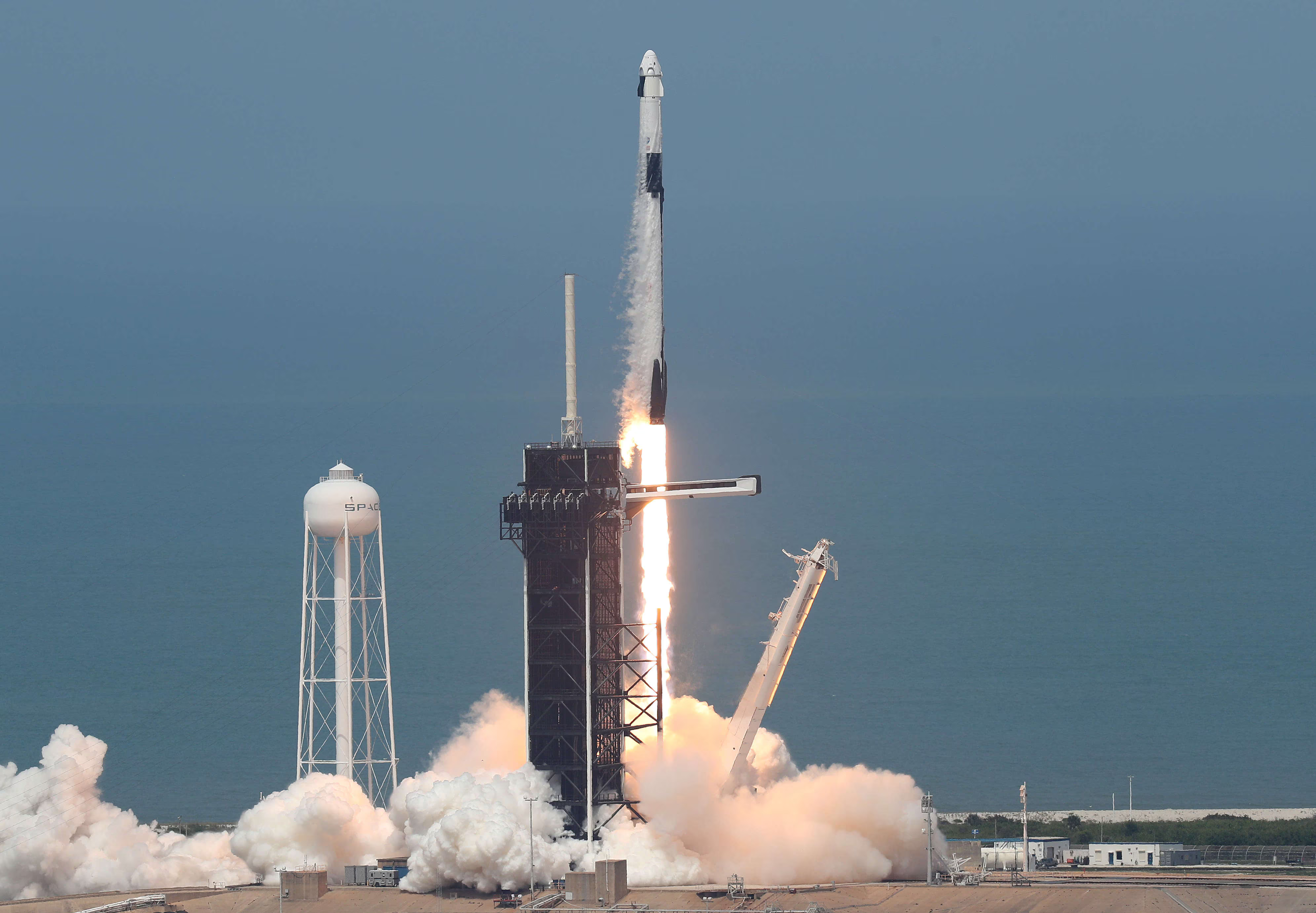
SpaceX has grounded its Falcon 9 rocket once again following a malfunction during the Crew-9 mission to the International Space Station (ISS), marking the third anomaly in three months.
The issue occurred when the Falcon 9’s second stage failed to land in the designated area in the ocean after its deorbit burn, despite an otherwise successful launch. SpaceX announced that launches would be paused until the root cause of the anomaly is fully understood.
Crew-9 Mission Succeeds Before Rocket Failure
The Crew-9 mission, which launched on Saturday, successfully delivered NASA astronaut Nick Hague and Russian cosmonaut Aleksandr Gorbunov to orbit. The astronauts safely arrived at the ISS on Sunday evening. The mission included two empty seats in the Dragon capsule to accommodate the return of two Boeing Starliner astronauts in February.
However, despite the successful crew delivery, the anomaly occurred during the deorbit burn of the second stage, which is a critical process to ensure debris lands in a specific area in the ocean.
In a statement posted on X (formerly Twitter), SpaceX confirmed that “Falcon 9’s second stage was disposed in the ocean as planned, but experienced an off-nominal deorbit burn. As a result, the second stage safely landed in the ocean, but outside of the targeted area.” SpaceX has committed to resuming launches only after better understanding the cause of the anomaly.
Falcon 9 Reliability in Question After Anomalies
This incident follows two earlier anomalies involving the Falcon 9 rocket. On July 11, a liquid oxygen leak developed in the insulation around the second stage’s engine during a routine Starlink mission, leading to the loss of 20 satellites. SpaceX later identified the cause as a cracked sense line connected to a pressure sensor, which was subsequently removed from all Falcon 9 rockets. The company resumed launches just two weeks after this issue, with U.S. regulators clearing the fleet to fly again in late July.
Another incident occurred on August 28, when the first stage booster failed to land successfully on a SpaceX drone-powered ship and was destroyed upon impact. Despite this, the Federal Aviation Administration (FAA) allowed SpaceX to continue launches while the investigation was ongoing.
This latest anomaly with the second stage could potentially affect several critical upcoming missions. Notably, the European Space Agency’s Hera mission, scheduled for October 7, and NASA’s Europa Clipper mission, scheduled for October 10, both have limited launch windows that close by the end of the month. Additionally, SpaceX had already delayed a Falcon 9 mission planned for last night, which was intended to launch 20 internet satellites for Eutelsat OneWeb.
The FAA has not commented on whether the Falcon 9 fleet will remain grounded pending an investigation, but their involvement could delay launches even further. One of the most immediate concerns for SpaceX is its upcoming Starlink missions. The company had planned to roll out a beta service for its cellular Starlink system for phones this fall, but the latest issues with the Falcon 9 may push those plans back.
Featured Image courtesy of Joe Raedle/Getty Images
Follow us for more tech news updates.
